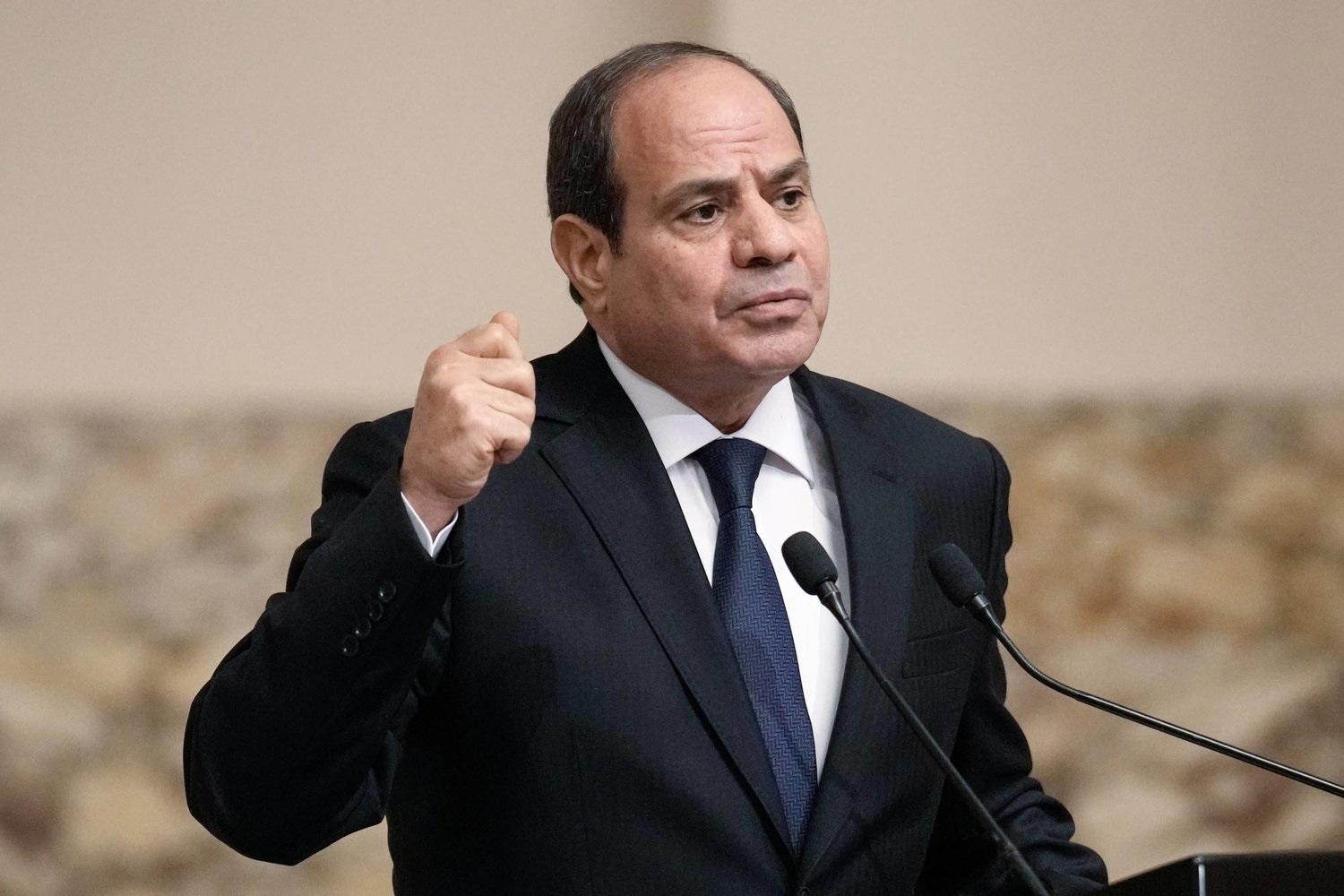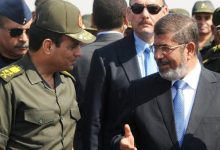Lebanese Researcher: Sisi’s Ambivalence on the Israeli War in Gaza

Watan-Political science professor at the American University of Beirut, and prominent writer and analyst, Hilal Khushan, said that Cairo is walking a tightrope regarding the war being waged by Israel on the Gaza Strip. Egypt is not eager to condemn Hamas’ attacks or outrightly support them, but it is concerned about one thing only.
Like many other countries, Egypt was taken aback by the war between Israel and Hamas, and the scale of the attack launched by Hamas on October 7th left little room for Egypt to mediate a ceasefire between Israel and the militant group, as it has done many times in the past.
Khushan stated in his analysis that Egyptian officials have only urged against expanding the war to other parts of the Middle East, rather than calling for a cessation of fighting.
He pointed out that Egyptian President Abdel Fattah el-Sisi is not concerned about the fate of Hamas, a close ally of its archenemy, the Muslim Brotherhood, but rather about the long-term consequences of creating a new regional reality, especially at a time when it seemed that the Israeli-Palestinian conflict was subsiding, and more Arab countries, including Saudi Arabia, were working to accelerate normalization talks with Israel, according to Al Khaleej Al Jadeed website.
Regarding the current Egyptian authority’s approach to Palestinians in Gaza, Khushan explained that Egyptians have developed a perception of Palestinians as troublemakers in need of constant surveillance by the country’s intelligence agencies.
Moreover, Palestinians attempting to flee Gaza for Egypt have faced discrimination and mistreatment even before the current war, and they are often asked for hefty sums of money to cross for medical treatment or travel, sums that have multiplied during the current crisis and go to agencies working with Egyptian military officers and intelligence personnel, according to Khushan.
He went on to say that this mafia does not spare the injured seeking treatment outside Gaza, to the extent that they are required to pay $5000 to enter Egypt.
Sisi does not want to open the crossing
According to the writer interested in regional security in the Middle East, with a focus on the Arab Gulf, Sisi does not want to open the Rafah crossing and believes that doing so would risk angering the US administration, although some parties in the region, including Jordan, believe that Washington will give the green light for this step, especially after the International Court of Justice ordered Israel to take steps to ensure the provision of humanitarian aid to the residents of Gaza.
Khushan linked in his analytical study Egypt’s reluctance to help Gaza to Sisi’s extremely hostile stance against Hamas, which he considers an extension of the Muslim Brotherhood, far from any humanitarian considerations, even going as far as to say that Cairo sent forces to the United States to train on detecting and destroying tunnels used for smuggling weapons and other goods into Gaza.
Local consumption
Khushan also addressed the Philadelphia Corridor, which has stirred much controversy in recent months. After withdrawing from the Gaza Strip in 2005, Israel signed an agreement with Egypt governing the administration of the Philadelphia Corridor (Salah al-Din), a narrow buffer zone along the border between Gaza and Egypt.
The writer expressed his belief that Egypt’s declared rejection of Israeli control over the Philadelphia Corridor seems inconclusive, especially since Israeli Prime Minister Benjamin Netanyahu considered the Egyptians’ statements and Sisi’s on this point “for domestic consumption only.”
Khushan says the truth indicates that Egypt under Sisi has cooperated with Israel in all its previous wars against Hamas.
Egyptian officials believe that Israel’s attempt to control the Philadelphia Corridor would jeopardize bilateral relations, while Israelis believe that their close relations, which have strengthened over decades since Egyptian President Anwar Sadat’s visit to Jerusalem in 1977, will survive the temporary occupation of the corridor.
Khushan pointed out that the most Egypt can do if Israel takes control of the corridor is to freeze bilateral security coordination without severing diplomatic relations.
As the major Israeli operations in northern Gaza and Khan Yunis City come to an end, the Israeli occupation army will soon head towards Rafah.
As more than half of Gaza’s population has sought refuge near the Egyptian border, the Israeli attack on the third and final part of the Gaza Strip, according to him, will force Palestinians to flee to northern Sinai.
Rabin’s nightmares
The American University in Beirut website conducted an interview with political researcher Hilal Khushan, who claimed that Israel does not want Gaza and will never return to it if it exits, and was happy to get rid of it. He added that when Yitzhak Rabin was prime minister, he had nightmares about Gaza. This was during the Israeli occupation of Gaza. He dreamed of the city sinking into the Mediterranean Sea.
He said Israel proposed handing Gaza over to Egypt, even though Egypt managed the Gaza Strip between 1949 and 1967.
According to the political writer, a colleague at the Institute of Eric J. Issa, Israelis feel that they must destroy Hamas because Hamas presents itself as an existential threat. He expressed his belief that Israel does not have a real foreign policy. Instead, it has internal fears. After Hamas, it is another matter.
Regarding Iran’s role, the writer believed that this role would weaken in the region. Iran has been advocating for the Palestinian cause and the axis of resistance for years. And now we see that this is nothing but propaganda because they are not doing anything.






